140 DAYS OF SUNSHINE
Short fictional documentary film - 13:04 (July 2020)
The film is an observational fictional documentary that points a phone camera at subjects that the phone is not designed to capture. The superficial nature of such a device does a poor job of capturing subjects absent from the digital world. The film is set around an event in a large square within a suburban environment. We see an outsider’s perspective through the phone camera of an unknown person, offering a judgmentally 'neutral' view of the politics in power. This perspective reveals how political (and religious) movements seeking the 'correct' way of living often undermine the ability to appreciate and respect the beauty of another community, one that seeks truth outside their own worldview.
The phone’s perspective depicts the perceived ugliness of an anarchist, anti-establishment community. Framed by the effects of Le Corbusier’s dogmatic vision in his Unité d'Habitation, this group excludes itself from society in a freestanding building elevated from the street. Below them, society is struck by a mysterious apocalyptic event. It is a society bound by ideals of capitalist, post-Christian cleanliness and 'normativity.' The desire for control, through surveillance cameras, reduces the city to a liminal space. Society becomes trapped in boredom, loneliness, and a sense of social imprisonment. Meanwhile, in the microcosm of the squat, filth and independence are celebrated. Their detachment from society is captured with a mix of perverse desire and disgust.
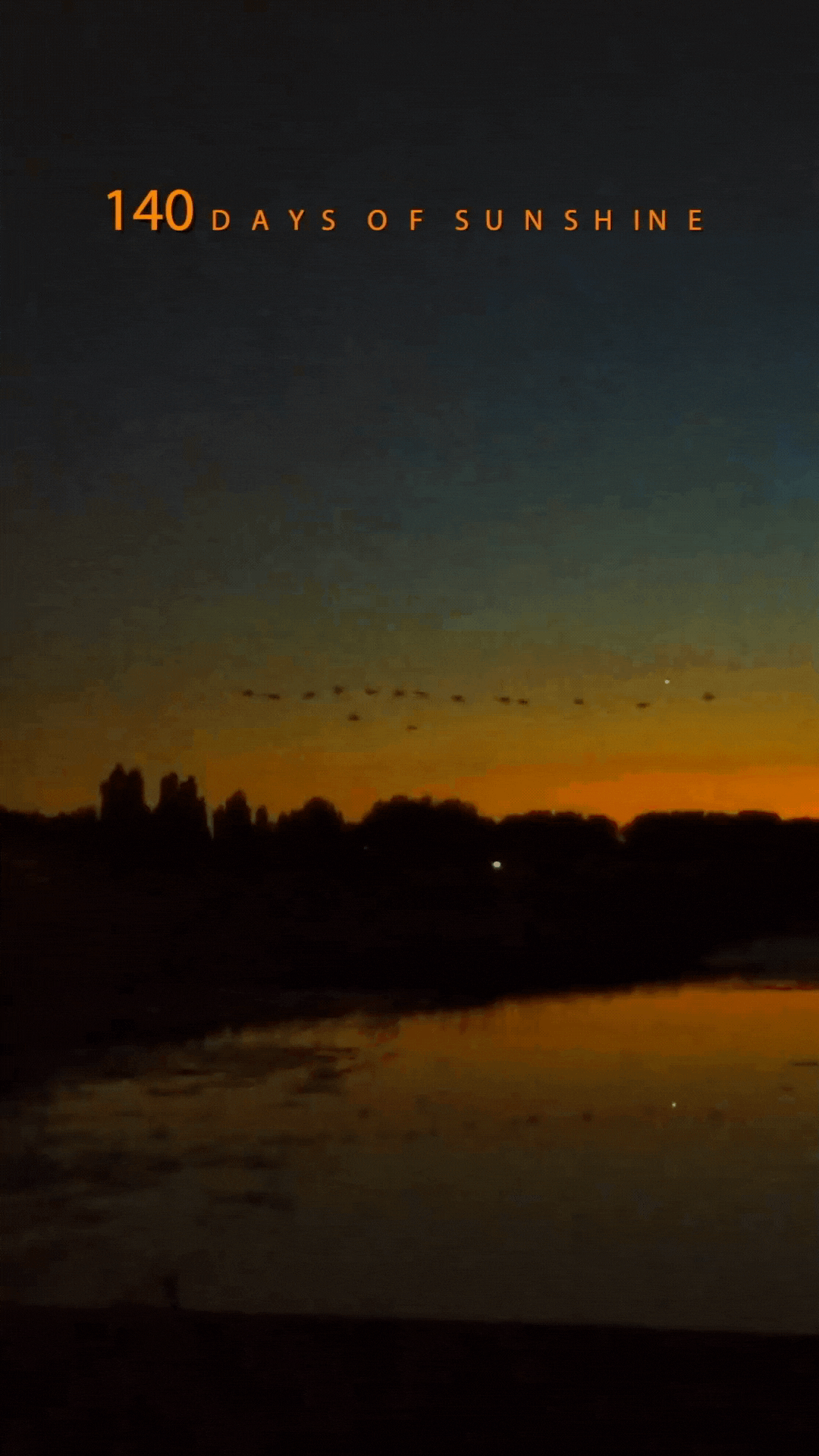
140 Days of Sunshine references 120 Days of Sodom by the Marquis de Sade, famously adapted by communist director/writer Pier Paolo Pasolini, who told the story of de Sade's dehumanizing perversions in the context of Italian fascism. Pasolini's adaptation explores how fascist authority in Italian society abuses power in the exclusionary setting of a sadomasochistic castle. For him, the dogmatic vision of Sodom serves to show "the effect of power on the human body: the reduction of the body to a commodity and the erasure of personal identity."
When this film was being made, the Netherlands was in lockdown due to the COVID-19 pandemic. We were commanded to stay at home and lived under a curfew. During this time, society began to fracture in unexpected ways. An interesting division of existential opinions formed, largely between those loyal to the rules of the state and a rapidly growing anti-establishment sentiment. Similar to how Pasolini described de Sade's ideas, the COVID regulations imposed by the late-capitalist Dutch government, along with the fear of the virus’s unknown effects, felt like a reduction of the human body to a commercial commodity—as if death were merely a loss of economic potential.
In some communities, there was a completely different attitude toward the threat of death. The virus, which the government sought to defeat and keep at bay, was almost embraced by these groups as a kind of beautiful outcast—something they felt a strange kinship with, like anarchists proudly identifying with the rat. Their reduced perception of life, indifferent to notions of "earth to earth, ashes to ashes, dust to dust," suggested that death offered an opportunity to reset society entirely—to end it in order to begin anew. In the film, we see crows salivating at the prospect of society’s imminent demise: a glimpse of opportunistic scavengers amidst seven days of death during a viral outbreak.
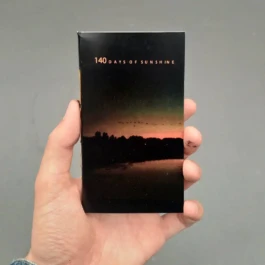
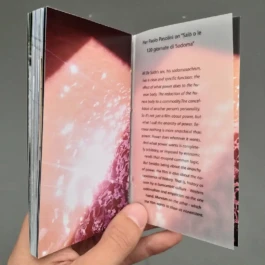
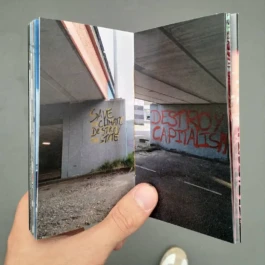
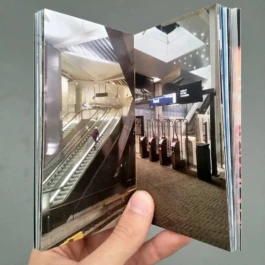
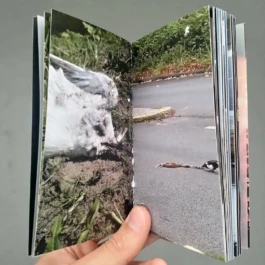
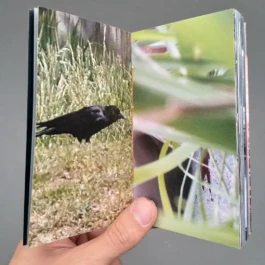
140 DAYS OF SUNSHINE
Short fictional documentary film - 13:04 (July 2020)
The film is an observational fictional documentary that points a phone camera at subjects that the phone is not designed to capture. The superficial nature of such a device does a poor job of capturing subjects absent from the digital world. The film is set around an event in a large square within a suburban environment. We see an outsider’s perspective through the phone camera of an unknown person, offering a judgmentally 'neutral' view of the politics in power. This perspective reveals how political (and religious) movements seeking the 'correct' way of living often undermine the ability to appreciate and respect the beauty of another community, one that seeks truth outside their own worldview.

The phone’s perspective depicts the perceived ugliness of an anarchist, anti-establishment community. Framed by the effects of Le Corbusier’s dogmatic vision in his Unité d'Habitation, this group excludes itself from society in a freestanding building elevated from the street. Below them, society is struck by a mysterious apocalyptic event. It is a society bound by ideals of capitalist, post-Christian cleanliness and 'normativity.' The desire for control, through surveillance cameras, reduces the city to a liminal space. Society becomes trapped in boredom, loneliness, and a sense of social imprisonment. Meanwhile, in the microcosm of the squat, filth and independence are celebrated. Their detachment from society is captured with a mix of perverse desire and disgust.
140 Days of Sunshine references 120 Days of Sodom by the Marquis de Sade, famously adapted by communist director/writer Pier Paolo Pasolini, who told the story of de Sade's dehumanizing perversions in the context of Italian fascism. Pasolini's adaptation explores how fascist authority in Italian society abuses power in the exclusionary setting of a sadomasochistic castle. For him, the dogmatic vision of Sodom serves to show "the effect of power on the human body: the reduction of the body to a commodity and the erasure of personal identity."
When this film was being made, the Netherlands was in lockdown due to the COVID-19 pandemic. We were commanded to stay at home and lived under a curfew. During this time, society began to fracture in unexpected ways. An interesting division of existential opinions formed, largely between those loyal to the rules of the state and a rapidly growing anti-establishment sentiment. Similar to how Pasolini described de Sade's ideas, the COVID regulations imposed by the late-capitalist Dutch government, along with the fear of the virus’s unknown effects, felt like a reduction of the human body to a commercial commodity—as if death were merely a loss of economic potential.






In some communities, there was a completely different attitude toward the threat of death. The virus, which the government sought to defeat and keep at bay, was almost embraced by these groups as a kind of beautiful outcast—something they felt a strange kinship with, like anarchists proudly identifying with the rat. Their reduced perception of life, indifferent to notions of "earth to earth, ashes to ashes, dust to dust," suggested that death offered an opportunity to reset society entirely—to end it in order to begin anew. In the film, we see crows salivating at the prospect of society’s imminent demise: a glimpse of opportunistic scavengers amidst seven days of death during a viral outbreak.